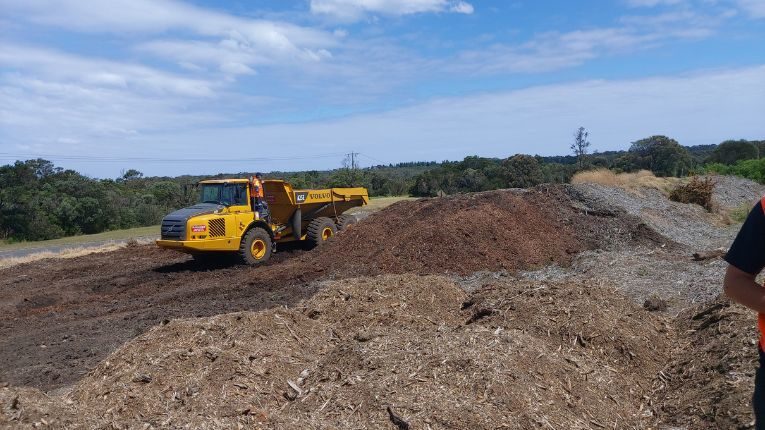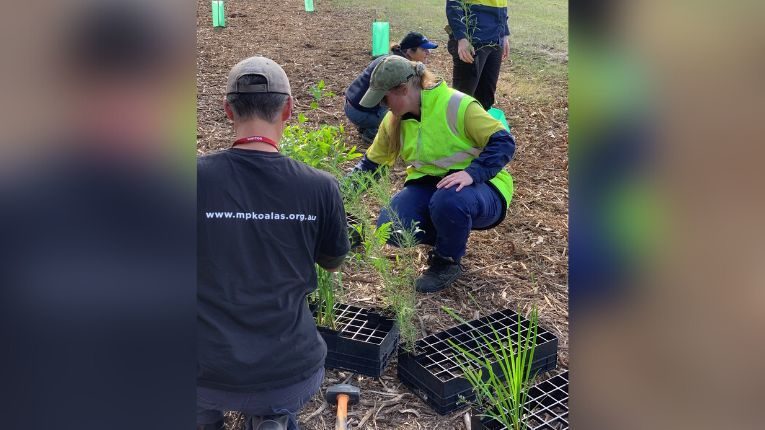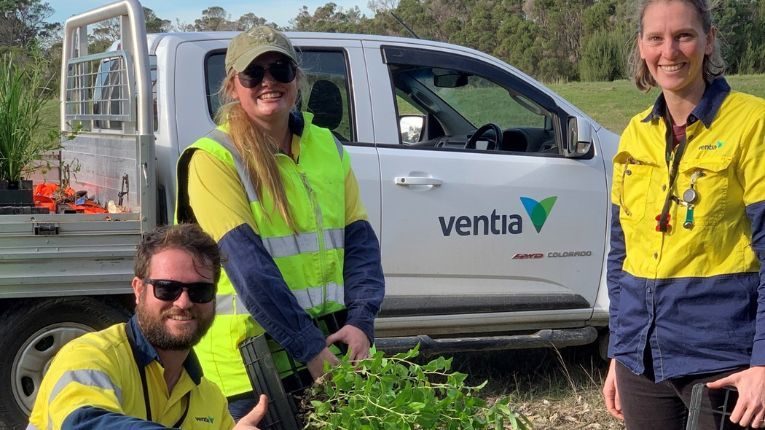Land management at HMAS Cerberus plays an important role in maintaining the Commonwealth heritage values of the site whilst allowing for the site to develop in line with its evolving needs.
Ventia's Grounds Maintenance Supervisor Justin Ridgeway has worked at the base for the past 17 years, originally joining the then-Transfield Services team in a hands-on role. Over the years, his role has evolved to encompass all the elements of land management in a holistic approach encompassing flora and fauna, pest management, sustainability and landscaping.
Following redevelopment at the base in April 2018, a stockpile of tree mulch accumulated that Justin and his team were keen to repurpose.
The 6000m3 pile was a result of an extensive base development across the site. The pile was becoming a host for invasive weeds to thrive and Justin knew there was a much better use for it.



